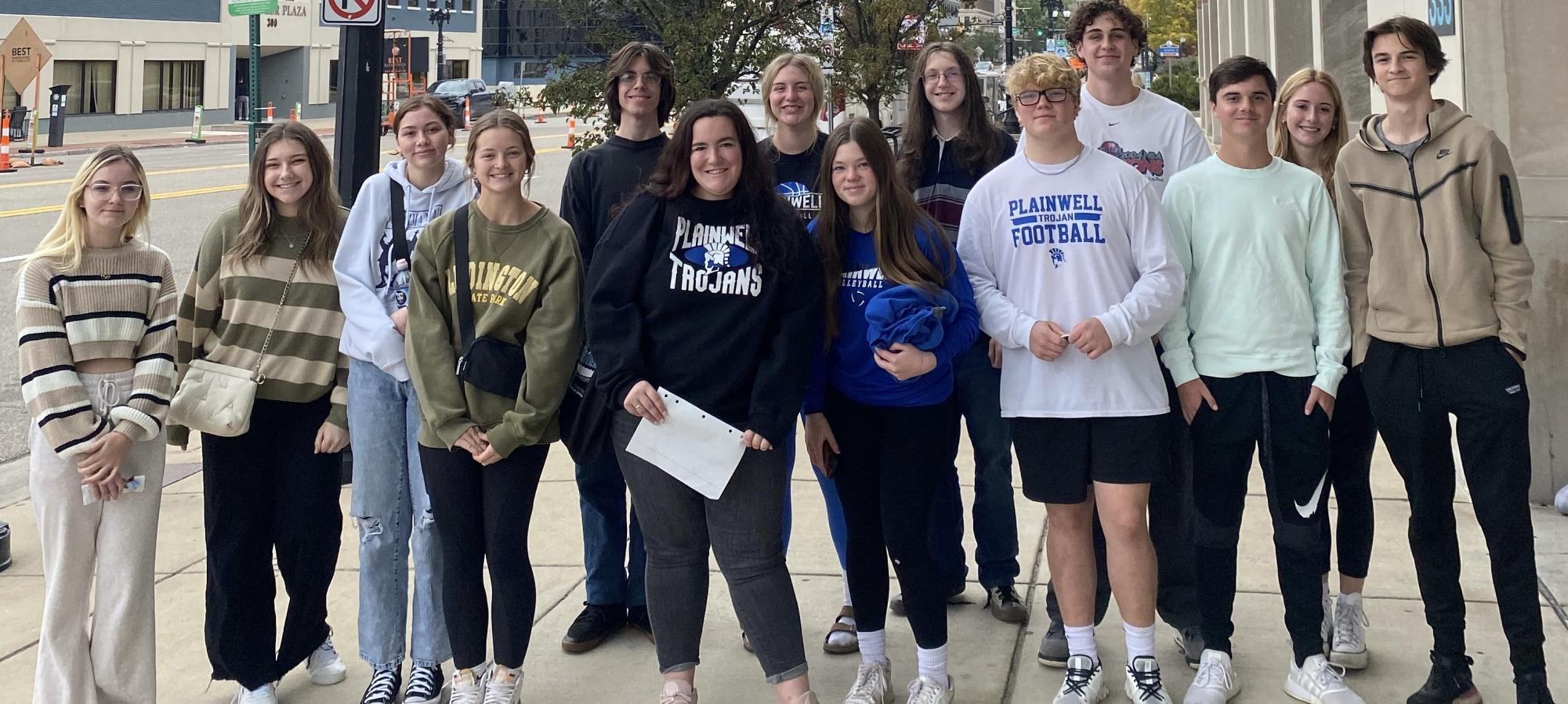Toxic Relationships
March 4, 2019
A new Netflix release titled “You” has caught the attention of many subscribers this month. “You” tells the story of a young book store clerk as he falls in love with a stranger he’s never met. His obsession with this young woman turns dark, toxic, and deadly.
“That show really creeped me out, it made me realize that even the people closest to you may really be trying to harm you,” said Sarah Roberts ‘19.
Although the TV show seems dramatized and far-fetched, it may not be as rarely occurring in the real world as people realize.
Toxic relationships are becoming a serious issue for young people in the U.S, and the statistics don’t lie.
According to Love is Respect, one in three adolescents in the U.S. is a victim of physical, sexual, emotional or verbal abuse from a dating partner.
Toxic relationships do not have to include physical abuse, although some do. These types of relationships are described by Psychology Today as any relationship that is unfavorable to you or others.
“The people you’re surrounded by can really influence your mental health, so it’s always important to reflect on how you’re treated by people in your life,” said Delaney Lentz ‘19.
High school seems to be a breeding ground for toxic relationships.
“People just date to have someone and they might not be in it for the right reasons, that’s how it goes in high school,” said Roberts.
Some teens just aren’t mature enough to be dating someone, or they let their own insecurities get in the way of something that could be great. This toxicity is created when a couple struggles to communicate properly.
“People just want the physical strings attached and not the emotional part, so they’re only in it to be with someone and not necessarily to have a connection with them. That’s where things start to become toxic,” said Roberts.
Nearly half of all women and men in the United States have experienced psychological aggression by an intimate partner in their lifetime (48.4 percent and 48.8 percent, respectively), according to the National Domestic Violence Hotline.
Yet toxic relationships are not just limited to the person you are dating.
Although these types of relationships are most commonly seen between dating partners, there is no limit to who can have these destructive patterns. Whether it’s best friends, boyfriends, girlfriends, or your parents, toxicity in the relationship can still exist.
“I’ve probably had two really toxic friendships. I think people believe that being toxic only happens with a boyfriend or girlfriend, but really it can happen with anyone,” said Roberts.
“I have had a few of those relationships. The person is just fake and rude but if they need something they come around and become your friend again,” said Haylie Chamberlin ‘19.
There are several warning signs when people are involved in toxic relationships, such as disrespect, control issues, never ending drama, jealousy and dishonesty. The list goes on and on, but the biggest factor in determining whether a relationship is toxic is if you find yourself unhappy in it.
“Stop talking to those toxic people and keep the real one’s around,” said Chamberlin.
Satisfying relationships in general make us happy, and research studies have shown that they are associated with better health and a longer life. On the other hand, toxic relationships with friends, family, or partners create added stress which is ultimately damaging to health.
Toxic relationships can easily be avoided by following the warning signs. Always be careful and know that you deserve relationships that feel safe.


